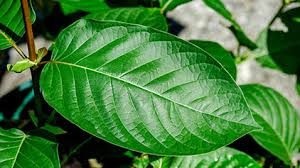
Breaking News
 Rand Paul just revealed he's working with RFK Jr. to prosecute Fauci. But Trump's DOJ is ign
Rand Paul just revealed he's working with RFK Jr. to prosecute Fauci. But Trump's DOJ is ign
 BREAKING EXCLUSIVE: "I Think Bill Gates Is The Boss," Epstein Survivor Claims Gates Was...
BREAKING EXCLUSIVE: "I Think Bill Gates Is The Boss," Epstein Survivor Claims Gates Was...
 Musk Offers Free Starlink As Iran Protests Endure Internet, Comms Blackout
Musk Offers Free Starlink As Iran Protests Endure Internet, Comms Blackout
 South Korea Seeks Death Penalty For Ex-President Yoon's Botched Martial Law Attempt
South Korea Seeks Death Penalty For Ex-President Yoon's Botched Martial Law Attempt
Top Tech News
 Superheat Unveils the H1: A Revolutionary Bitcoin-Mining Water Heater at CES 2026
Superheat Unveils the H1: A Revolutionary Bitcoin-Mining Water Heater at CES 2026
 World's most powerful hypergravity machine is 1,900X stronger than Earth
World's most powerful hypergravity machine is 1,900X stronger than Earth
 New battery idea gets lots of power out of unusual sulfur chemistry
New battery idea gets lots of power out of unusual sulfur chemistry
 Anti-Aging Drug Regrows Knee Cartilage in Major Breakthrough That Could End Knee Replacements
Anti-Aging Drug Regrows Knee Cartilage in Major Breakthrough That Could End Knee Replacements
 Scientists say recent advances in Quantum Entanglement...
Scientists say recent advances in Quantum Entanglement...
 Solid-State Batteries Are In 'Trailblazer' Mode. What's Holding Them Up?
Solid-State Batteries Are In 'Trailblazer' Mode. What's Holding Them Up?
 US Farmers Began Using Chemical Fertilizer After WW2. Comfrey Is a Natural Super Fertilizer
US Farmers Began Using Chemical Fertilizer After WW2. Comfrey Is a Natural Super Fertilizer
 Kawasaki's four-legged robot-horse vehicle is going into production
Kawasaki's four-legged robot-horse vehicle is going into production
 The First Production All-Solid-State Battery Is Here, And It Promises 5-Minute Charging
The First Production All-Solid-State Battery Is Here, And It Promises 5-Minute Charging
Is Kratom a Performance Enhancer or a Lethal Opioid?

Deep in the heart of the Adirondacks, the unexpected death of a small-town police sergeant has added fuel to a nationwide controversy over an herbal supplement.
On August 6, 2017, police cruisers raced down blacktopped country roads in Tupper Lake, New York, to Haymeadow Road, their sirens piercing the tranquil summer day. A medical emergency had been called in from just over the village line, and the address was immediately recognizable to anyone in local law enforcement: it was the home of an off-duty sergeant and his girlfriend. That day, nearly every officer in the Village of Tupper Lake police department, which employs 11, had been at the station putting together a search warrant. Soon, close to a dozen officers—village police, state troopers, and even an officer from the environmental-conservation police—swarmed the home and began working on their unresponsive 27-year-old colleague, sergeant Matthew Dana. Despite their efforts, no one could revive him and he was soon pronounced dead. They were all left wondering: What exactly had gone wrong?

 Storage doesn't get much cheaper than this
Storage doesn't get much cheaper than this

